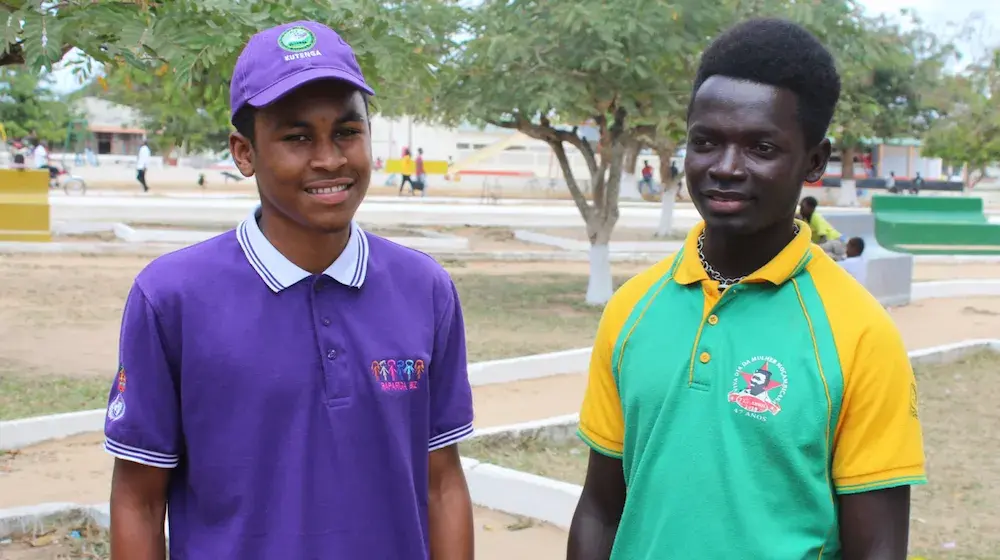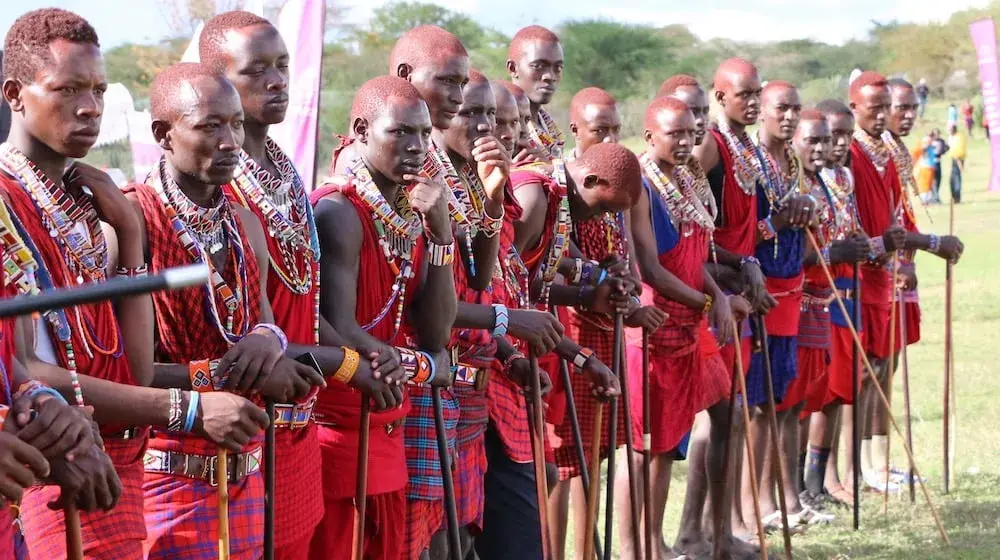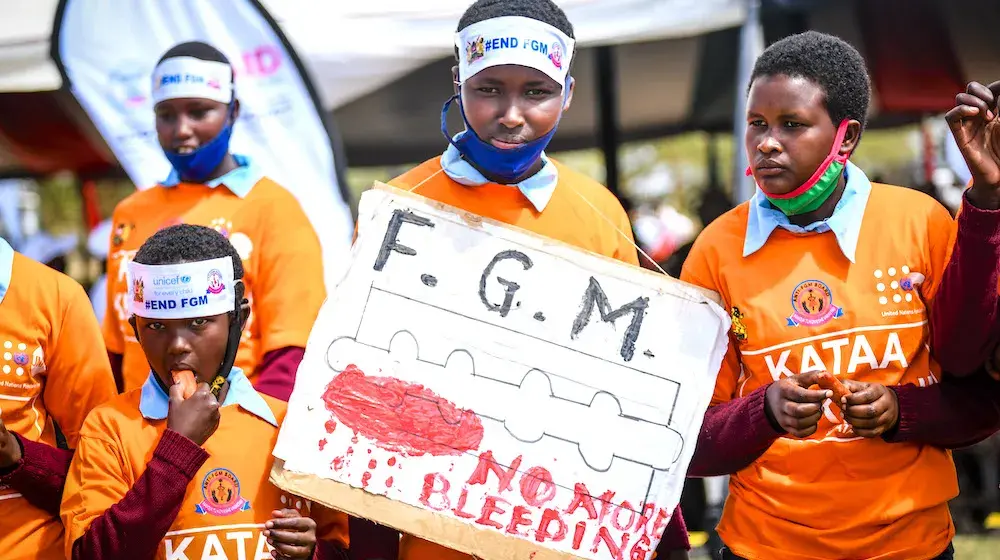
JOHANNESBURG, South Africa, 20 – 24 March 2016 – Legal drafters from SADC Member States have approved the draft Model Law on Eradicating Child Marriage and Protecting Children Already in Marriage, setting the stage for its final adoption by the Plenary Assembly of the SADC-PF.
The Plenary Assembly is the highest decision-making body of the SADC-PF, the deliberative forum that brings together National Parliaments from 14 SADC Member States and approximately 3500 Parliamentarians.
Drawn from Malawi, Mauritius, Mozambique, South Africa, Swaziland, Tanzania, Zimbabwe and Zambia, the legal drafters met over five days in Johannesburg, South Africa to review the draft model law to ensure its compliance with international legal drafting codes and efficacy to the policy and legal objective of eradicating child marriage which is a serious concern in the SADC region.
The legal drafters went through the draft model law clause by clause before they approved it. Renowned Botswana High Court Judge Prof Oagile Dingake, who holds a PhD in law, facilitated the validation meeting.
The approval by the legal drafters is the penultimate stage before the adoption of the model law by parliamentarians from SADC National Parliaments who are scheduled to meet in Swaziland in June 2016 for the 39th Plenary Assembly Session of the SADC-PF.
With support from the governments of Sweden and Norway, the SADC-PF and other partners developed the model law in response to the prevalence of child marriage in Southern Africa, which is driven by a number of factors including high poverty levels, gender inequity, traditions, religion, limited education and inadequate legal frameworks in Member States, most of which are inconsistent. Research shows that an estimated eight percent of all pregnancies are teenage pregnancies and 16 percent of all births in the sub-region are teenage pregnancies. In addition, 36 percent of all maternal deaths are teenage deaths while unsafe abortions are responsible for 13 percent of maternal deaths, painting a bleak picture in a region in which scores of people including adolescents have poor access to Sexual Reproductive Health Rights services.
SADC PF’s efforts to develop and adopt a regional model law on eradicating child marriage and protecting children already in marriage has received support from the United Nations Populations Fund (UNFPA) East and Southern Africa Regional Office, United Nations Development Programme (UNDP), the Association of European Parliamentarians with Africa (AWEPA), Plan International’s 18 Plus Programme, the Southern African Litigation Centre and Girls Not Brides: The Global Partnership to End Child Marriage.
The process to develop the model law started in 2015 and has involved wide consultations with various stakeholders in SADC Member States at regional level including victims of child marriages, Parliamentarians, civil society organizations and Human Rights Commissions. When adopted the model law will be a yardstick providing guidance to legislators, policymakers and other stakeholders in SADC Members States as they develop national laws to eradicate child marriages and protect those already in marriage.
The inspirational law has best practice provisions, making it easy for Member States to adapt or adopt it in keeping with their national situations. The ultimate aim is that national laws are harmonised and without loopholes so as to prevent child marriage.
***
SADC PF, the SADC Parliamentary Forum, is a regional organisation of the National Parliaments of SADC Member States formed in 1996 and approved by the SADC Summit of Heads of State and Government in 1997 with the primary objective of involving the people of SADC and their elected representatives in the affairs of SADC. SADC PF is the voice of Parliamentarians in the SADC region and has its Headquarters in Windhoek, Namibia. Contact Programme Director, Ms. Boemo Sekgoma on email: bsekgoma@sadcpf.org / boemosekgoma@gmail.com cc: Public Relations Officer, Mr Moses Magadza on email mmagadza@sadcpf.org
UNFPA, the United Nations Population Fund, is the lead UN agency for delivering a world where every pregnancy is wanted, every child birth is safe, and every young person's potential is fulfilled. UNFPA East and Southern Africa Regional Office (ESARO) works in 23 countries in the region as a catalyst for change. Visit http://esaro.unfpa.org, ‘like’ UNFPA ESARO on Facebook and follow @UNFPA_ESARO on twitter.
Girls Not Brides is a global partnership of more than 550 civil society organizations from over 70 countries committed to ending child marriage and enabling girls to fulfil their potential. Visit www.GirlsNotBrides.org and follow @GirlsNotBrides on twitter.
Plan International is a child rights organization working with communities in many countries to alleviate child poverty so that children can realize their full potential. Plan International is currently implementing the 18+ Programme aimed at ending child marriage.
Southern Africa Litigation Center—an organization established in 2005 is committed to promoting human rights and the rule of law in Southern Africa including adolescents’ access to justice.
For more information or any media inquiries, please contact:
Moses Magadza, Communications & Advocacy Specialist, SADC PF: mmagadza@sadcpf.org
Adebayo Fayoyin, Regional Communications Adviser, UNFPA East and Southern Africa: fayoyin@unfpa.org
Ruth Koshal, Senior Officer for Africa Engagement, Girls Not Brides: Ruth.Koshal@GirlsNotBrides.org
Alexandra Newlands, Africa Programme Associate, Girls Not Brides: Alexandra.Newlands@GirlsNotBrides.org
Samuel Musyoki, Chairperson 18+ Program on Ending Child Marriage in Southern Africa & Country Director, Plan International: Samuel.Musyoki@plan-international.org
Nyasha Chingore-Munazvo, Lawyer, Sexual and Reproductive Rights Programme, Southern Africa Litigation Centre (SALC): nyashac@salc.org.za




